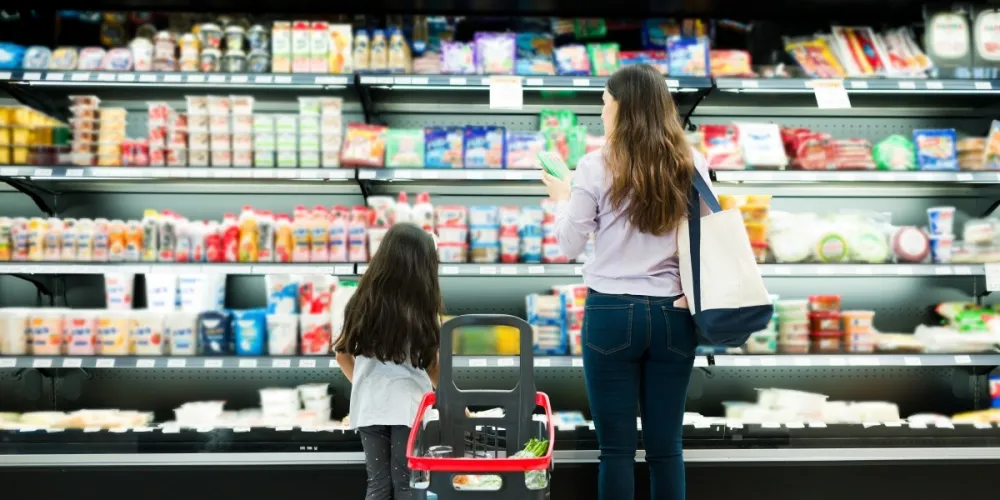Promoting Healthy and Sustainable Food Choices in Mexican Supermarkets
Start Date
End Date
Project location

Background
Mexico is experiencing one of the highest rates of obesity and type 2 diabetes globally, with 75% of the population classified as overweight or obese. This public health burden is especially pronounced in the northern region of the country, particularly in the Sonoran Desert, where dietary patterns are influenced by high consumption of ultra-processed foods and sugar-sweetened beverages. Environmental factors such as extreme heat and water scarcity contribute to these dietary behaviours.
Supermarkets are the primary source of food purchases in this region. However, unhealthy products are often more accessible and aggressively promoted than healthier alternatives. This, combined with the significant environmental impact of current dietary patterns, especially greenhouse gas emissions from animal-based and processed foods, highlights the urgent need for interventions targeting the retail food environment.
Aim
The project aims to evaluate whether altering in-store promotion and placement strategies can increase the sales of healthier and environmentally sustainable foods in supermarkets. The ultimate goal is to inform public policy and business practices that can reduce the burden of diet-related non-communicable diseases and mitigate environmental damage from the food system.
Research Methodology
This is a factorial randomised controlled trial using the Multiphase Optimization Strategy (MOST). The study is being conducted in local supermarkets across Hermosillo, Sonoran Desert region of Mexico. It involves two key interventions
- Enhanced Promotion – including in-store signage, sustainability logos, and social media marketing.
- Optimised Placement – strategic shelf positioning and increased visibility of target products.
Supermarkets are randomly assigned to different combinations of these interventions or control conditions. The foods selected for promotion and placement are identified based on their environmental impact and nutritional quality, using validated tools such as the FoodSwitch platform and the Mexican nutrient profiling model, adapted for the local context. Metrics include food sales data, product nutritional and environmental profiles, and implementation fidelity.
Current status
The initial assessment of the supermarket food environment has been completed, including stakeholder workshops and a baseline survey of product offerings and sales. Preparations are currently underway for a pilot phase of the interventions, which will test the feasibility and refine the implementation of promotion and placement strategies in selected stores. In parallel, training sessions are being conducted with supermarket staff and academic collaborators to build capacity in areas such as food sustainability, nutritional profiling, and effective intervention implementation. This pilot will inform the full-scale rollout scheduled for later in 2025, with ongoing evaluation and data collection planned throughout the project period.
Lead
Dr. Elisa Pineda, Research Fellow, The George Institute for Global Health, School of Public Health, Imperial College London
Related Investigators
- Research team from Universidad de Sonora
- Local supermarket’s staff and management
- FoodSwitch data management collaborators
